The 26th Annual Meeting of
Society for Evolutionary Studies, Japan
SESJ2024
The 26th Annual Meeting of the Evolutionary Studies Society of Japan will be held from
August 21, 2024 (Wed) to August 24, 2024 (Sat) at
Tokai University Shonan Campus (August 21 to August 23) and
Kanagawa Prefectural Museum of Natural History (August 24).
Abstracts are available from here.
Notice from the Committee
August 26, 2024: The winners of the awards at the SESJ2024 can be viewed on the SESJ website. The link is here (in Japanese).
August 26, 2024: Lost and found at the venue. Click here for photo of the items. If you are the person who lost the item, please email .
.
August 19, 2024: Please be cautious of infectious diseases such as COVID-19.
August 18, 2024: Online (virtual) poster presentation ( https://evolgen.biol.se.tmu.ac.jp/sesj2024/poster/logon.asp ) has been started.
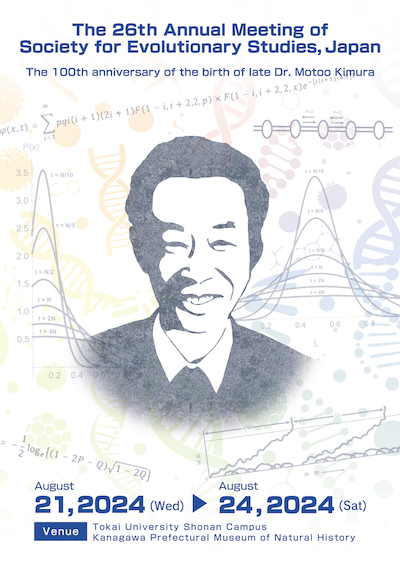
Please download the poster from here
SESJ2024 is co-hosted by RCIES, SOKENDAI
and by Kanagawa Prefectural Museum of Natural History
SESJ2024 is supported in part by Tokai University Research Organization and The Motoo Kimura Trust Foundation for the Promortion of Evolutionary Biology.
Contact : 
Announcement
About accommodations
The number of accommodations near the venue is limited.
We kindly ask all prospective participants to make hotel reservations as soon as possible.
Accommodations
(1) Near Odakyu Railway Isehara Station (6 min by train to Tokai-Daigakumae station)
Hotel Select Inn Isehara (https://select-hotels.jp/en/isehara/)
Apa Hotel Isehara-Ekimae (https://www3.apahotel.com/ja/)
(2) Near Odakyu Railway Honatsugi Station (12~16 min by train to Tokai-Daigakumae station)
Rembrandt Hotel Atsugi (https://rembrandt-group.com/atsugi/atsugi_en/english_a)
Atsugi Urban Hotel (https://www.auhf.co.jp/en/)
Hotel Mystays Atsugi (https://www.mystays.com/en-us/hotel-mystays-atsugi-kanagawa/)
Odakyu Station Hotel Hon-Atsugi (https://www.odakyu-hotel.co.jp/atsugi-hotel/en/)
Hotel Vista Atsugi (https://atsugi.hotel-vista.jp/en/)
Toyoko Inn Hotel Hon-atsugi-eki Minami-guchi (https://www.toyoko-inn.com/eng/index)
R-bend hotel Atsugi (http://www.r-bendhotel.com/e_index.html)
(3) Near Odakyu Railway Ebina Station (16~20 min by train to Tokai-Daigakumae station)
Rembrandt Hotel Ebina (https://rembrandt-group.com/ebina/ebina_en/english_e)
Hotel Route-Inn Ebina Ekimae (https://www.route-inn.co.jp.e.ut.hp.transer.com/hotel_list/kanagawa/index_hotel_id_631/?_ga=2.83391248.707258012.1714090919-760044694.1714090919)
Hotel Vista Ebina (https://ebina.hotel-vista.jp/en/)
Toyoko Inn Hotel Ebina-eki Higashi-guchi (https://www.toyoko-inn.com/eng/index)
(4) Near Japan Railways Hiratsuka Station
Toyoko Inn Hotel Shonan Hiratsuka-eki Kita-guchi No.1 or No.2 (https://www.toyoko-inn.com/eng/index)
X(a.k.a Twitter)account for SESJ2024 is opened
X accout for SESJ2024 is @Shinka_2024
Please follow!
Open Call for Symposiums and Workshops has closed!
We received many applications. Thank you very much.
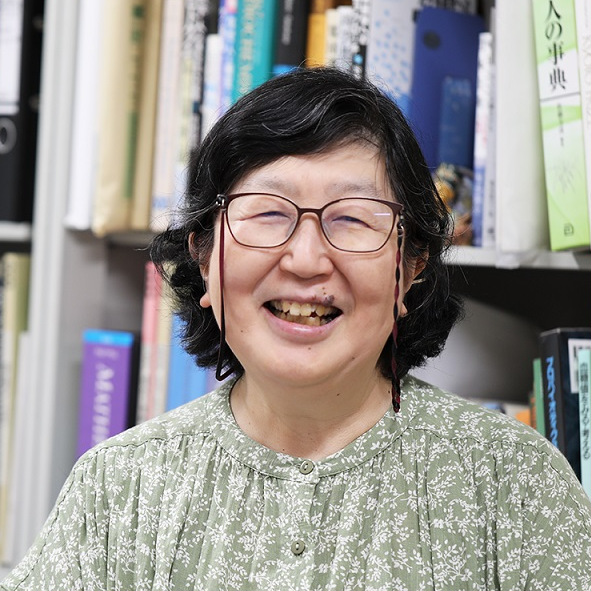
Prof. Yoko Satta
Chair of the organizing committee
Greeting
The 2024 Annual Meeting of the Japan Society of Evolutionary Studies (Kanagawa Conference) will be held at the Shonan Campus of Tokai University from August 21st to 23rd, 2024. The summer school and open lectures will be on August 24th at the Kanagawa Prefectural Museum of Natural History.
2024 marks the 100th anniversary of the birth of Dr. Motoo Kimura, who proposed the "neutral theory of molecular evolution" based on the theory of population genetics, brought a new trend in evolutionary studies. The neutral theory remains firmly established as the null hypothesis of molecular evolution and population genetics even in the current era of genome science. This year's conference aims to organize issues in evolutionary research from a global perspective with Asian researchers (with participation from evolutionary societies in Taiwan and Korea) and to increase momentum for taking on new challenges.
To this end, we are trying to provide as many opportunities for discussion as possible by incorporating many sessions in English and by having the poster venue and the reception venue side by side. Furthermore, as was the case last year in Okinawa, childcare facilities will be provided at this year's conference as well, so that many people will be able to participate in the conference.
We are also very pleased to hold the final day's program with the cooperation of the Kanagawa Prefectural Museum of Natural History. The Museum exhibits a variety of wonderful collections related to evolution. This will be a good opportunity for general public to experience the fascination of biology and evolution not only through the lecturers' talks, but also through the museum's exhibits. We hope that all members will take this opportunity to stop by the Kanagawa Prefectural Museum of Natural History.
The organizing committee looks forward to seeing many of you there.
Program
For detailed program, please click here (Updated on Aug 20).
For the list of poster presentations, please click here (Updated on Jul 25).
Abstracts for Symposium and Workshops are available here.
Information for the online poster presentation is available here (updated on Aug 2).
Please download Abstracts from here (updated on Aug 14).
The password to open PDF file and read abstracts will be informed through an email from SESJ office to society member. For non-society member, email from SESJ2024 will be sent to inform the password. If one does not receive such emails by August 14, please contact shinka2024[at]gmail.com. The password is also shown at the back of registration card and, for those who register on site, please refer the registration card.
August 21
Reception open 09:00
10:30 ~ 11:30
Oral Presentations
12:45 ~ 14:45
Plenary
15:00 ~ 17:00
S1(English):"Frontiers of Cultural Evolution Research: Approaches from Physics, Informatics, and Cognitive Science"
S2(Japanese):「分子進化の中立説の過去・現在・未来」
W1(Japanese):「完新世の地球科学と進化学」
Oral Presentations
17:00 ~ 18:00
Posters
17:00 ~ 17:30 Odd numbers
17:30 ~ 18:00 Even numbers
August 22
Reception open 09:00
10:30 ~ 11:30
W2(Japenese):「さまよう遺伝子と宿主の進化:ウイルス・トランスポゾンからの視点」
W3(English):"Diversification and evolution of animals in Sulawesi island, Wallacea"
Oral Presentations
12:45 ~ 14:45
S3(English):"Korean-Japanese joint society symposium"
S4(Japanese):「日本から見た栽培植物の進化」
W4(Japanese):「多様なショウジョウバエから解明する進化のメカニズム」
Oral Presentations
15:00 ~ 17:00
S5(English):"Evolution of species in Asia"
S6(Japanese):「サトイモ科植物をとりまくユニークな進化研究」
W5(Japanese):「パンゲノム解析から見出されるゲノム多様性」
Oral Presentations
17:00 ~ 18:00
Posters
17:00 ~ 17:30 Even numbers
17:30 ~ 18:00 Odd numbers
August 23
Reception open 09:00
10:00 ~ 12:00
S7(English):"Evolutionary studies of eating"
S8(English and Japanese):「木村の2変数法に始まる塩基置換研究の現在」
S9(Japanese):「動物の集団性の進化を探る:ゲノム、神経からロボティクスまで」
W6(Japanese):「染色体の数と形の多様性」
Oral Presentations
11:30 ~ 13:00
High School Posters
12:00 ~ 13:30
Special event on scientific illustration (in Japanese)
*Food and beverages are allowed at the venue for this event, so it is recommended to purchase or bring your own lunch.
13:30 ~ 15:30
Plenary
15:40 ~ 16:50
General meeting
16:50 ~ 17:50
Award Lecture
Masaki Miya (Natural History Museum and Institute, Chiba)
「魚類3万5千種の由来と現在:データ駆動型・仮説探索型アプローチで解き明かした魚類の時空間ダイナミクス」
18:00 ~ 20:00
Social gathering/ Gala dinner
August 24
10:00 ~ 12:00
Summer School
13:30 ~ 16:00
Public seminar
Plenary lecture 1
"To understand human infectious diseases - the evolution of pathogens and host immune responses -"
Speakers
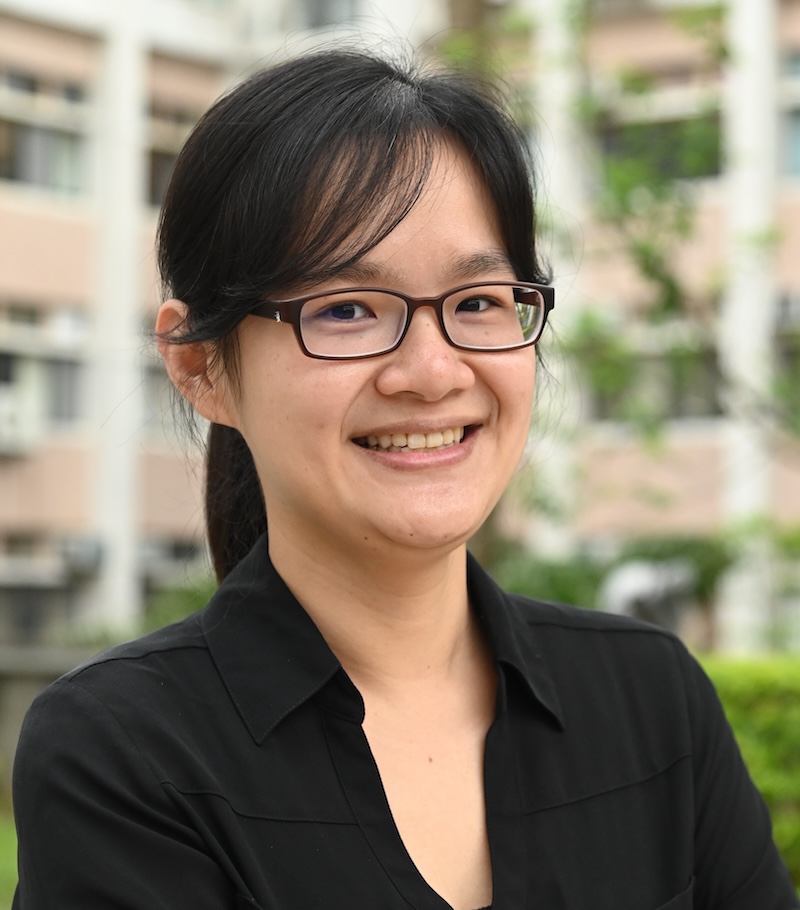
Dr. Hsiao-Han Chang
Associate Professor
Institute of Bioinformatics and Structural Biology, National Tsing Hua University, Hsinchu, Taiwan
Inferring dominant selective forces shaping the evolution of pathogens across space and time
Abstract
Infectious diseases have a significant impact on human populations worldwide. Understanding how pathogens evolve is crucial for controlling these diseases. While many pathogen sequences are available and have been used to identify segregating mutations in populations, distinguishing beneficial mutations from deleterious ones that have not been removed from the population is challenging. For predominantly clonal pathogens without recombination, linkage disequilibrium-based methods to detect selection are unsuitable, hindering the understanding of selection on these pathogens. Our group developed a novel method that uses changes in dn/ds ratios, rather than absolute values, across space and time to identify dominant selective forces. We applied this method to various proteins of different pathogens, including dengue virus, influenza virus, Ebola virus, mumps, and enteroviruses, using publicly available genomic data. We tested the hypothesis that receptor-binding proteins are more likely to be dominated by positive selection when they first become human viruses by comparing the selective forces on newly emerged viruses (H1N1pdm and Ebola virus) with those on viruses that have been infecting humans for a longer period. Surprisingly, receptor-binding proteins were dominated by negative selection in the two newly emerged viruses. Interestingly, while negative selection remains the predominant selective force on receptor-binding proteins, dominant positive selection forces were occasionally observed in later years for H1N1pdm, influenza B Victoria, enterovirus A71, and Ebola virus. In summary, we developed a new population genetic tool to infer dominant selective forces using publicly available genomic data across space and time, providing insights into different stages of pathogen evolution.
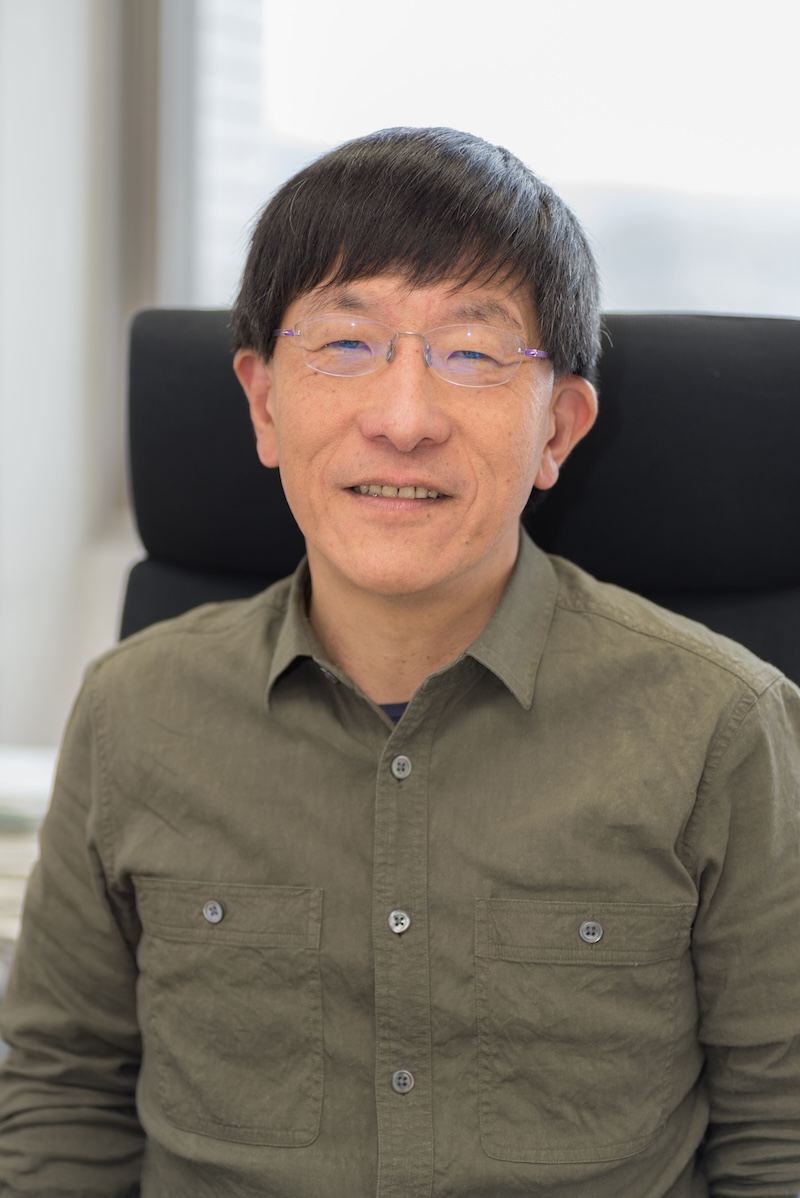
Dr. Ituro Inoue
Professor, National Institute of Genetics
Evolutionary and genomic aspects of modern diseases
Abstract
In the title, I used “modern diseases”, which generally means currently observed diseases but more likely diseases of civilization. Our genomic program and the modern life-style has a distortion that causes modern diseases. Typical case would be obesity. We experienced famine for the most of our historical period then high ability of energy incorporation is beneficial for survival but in modern-life, that ability would cause obesity. This famine and feast concept is originally proposed by James Neel as the thrifty genotype hypothesis. Although Neel’s hypothesis is now controversial, it is worth discussing the distortion between genomic program and modern diseases. Particularly, we obtained huge amount of genomic information owing to advances of medical genomics, I will present several examples: Women’s menstruation and modern diseases such as endometriosis are tightly related and can be discussed with evolutionary aspects. We basically assume that natural selection and disease susceptibility are closely related. Particularly infection-resistant genes, such as malaria resistance and HbS mutations, are well-known examples. For gene identification of common disease, GWAS is performed with a very large-scale sample size which can detect subtle genetic factors showing odds ratio around 1.05-1.15. Also many methods are developed to detect natural selection, which are becoming much sensitive and powerful. Then we are in new stage to discuss genetic susceptibility of common disease and natural selection. We also introduce our recent study about the APOBEC deletion polymorphism showing diverse allele frequencies among populations. APOBEC functions as a protective factor of virus infection. We discuss a possible role of the deletion polymorphism in related with virus infection with evolutionary aspects.
Plenary lecture 2
"The 100th anniversary of Motoo Kimura"
Speakers
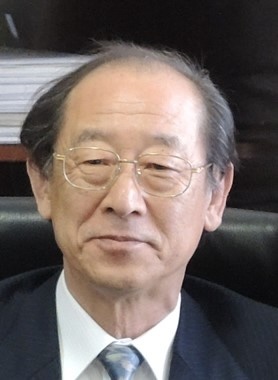
Dr. Naoyuki Takahata
Professor Emeritus, former President, SOKENDAI
「ゲノム時代のキムラ」
In Japanese
Abstract
木村資生先生(1924-1994)は生涯を通じて生物進化の遺伝的メカニズムに関する数理的研究を行い、集団遺伝学における3人の創設者 (R. A. Fisher, S. Wright, J. B. S. Haldane) の後継者と評された。とくに前向き、後向き拡散方程式を駆使した研究はネオ・ダーウィニズム時代の集団遺伝学に新しい局面を開いたが、一方で先生は新しいデータに敏感に反応し、いち早くその定量的な理解を深めた人でもあった。分子進化の中立説を提唱した68年の論文にはこの両面がよく顕れている。しかもその論考が個々の分子に限定されずゲノム全体に及んでいることは、今読み返してみても新鮮な驚きを覚える。当初からゲノムを意識した中立説ではあるが、本講演では実際にゲノムの時代になった今、その現状と課題について次の3点から概観する:①進化速度と新生突然変異率、②遺伝的浮動とヒッチハイキング、③デモグラフィーと非平衡中立変異。結論として, 未解決の問題はなお多く残るものの、ゲノムレベルの進化の理解には中立説的な視座が正鵠を射ており、広く受け入れられるようになったことを述べる。
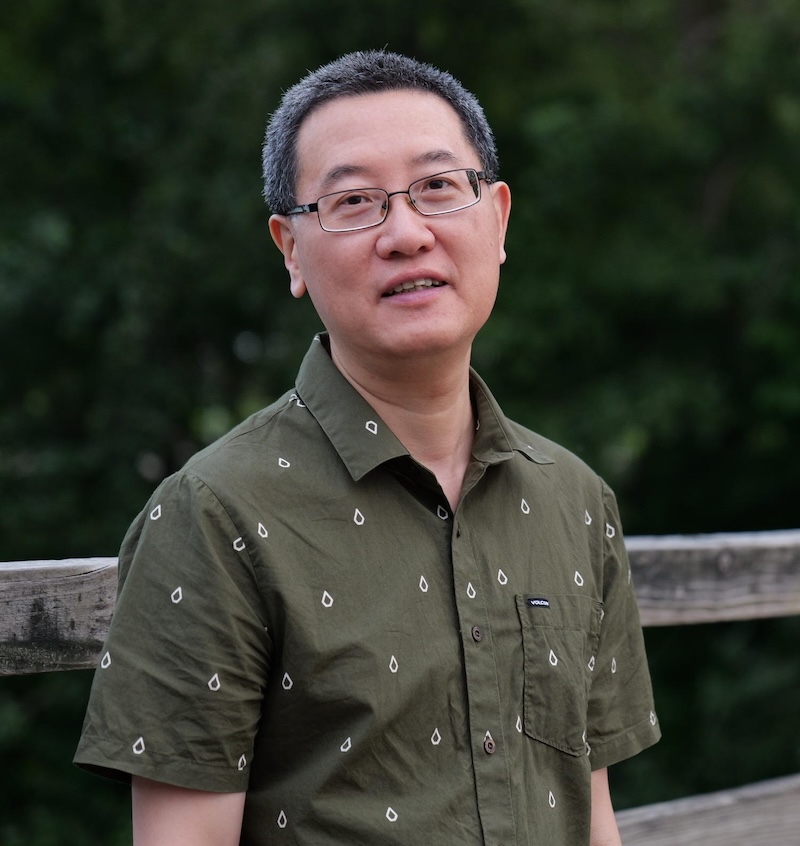
Dr. Jianzhi "George" Zhang
Marshall W. Nirenberg Collegiate Professor
Department of Ecology and Evolutionary Biology, University of Michigan, USA
Revisiting the Neutral Theory of Molecular Evolution
Abstract
The neutral theory asserts that most amino acid or nonsynonymous nucleotide substitutions in molecular evolution are selectively neutral and attributable to genetic drift. The neutral theory has received substantial support, especially from comparative genomics in the last two decades, and is now widely accepted. However, here we show that the key premise of the theory—beneficial mutations are extremely scarce—is violated. Data from deep mutational scanning reveal that typically over 1% of nonsynonymous mutations are significantly beneficial, predicting a nonsynonymous substitution rate hundreds of times the neutral expectation and fraction of adaptive nonsynonymous substitutions exceeding 99%. We propose that most observed beneficial mutations are nevertheless environment-specific because environment-independent beneficial mutations should have long been fixed. Consequently, due to frequent environmental changes and mutational antagonistic pleiotropy across environments, the bulk of beneficial mutations seen at one time become deleterious soon after, so are rarely fixed. Thus, despite the occurrence of adaptive tracking—continuous adaptation to a changing environment fueled by beneficial mutations, neutral substitutions prevail. This quasi-neutral model of molecular evolution reconciles the relative prevalence of beneficial mutations with patterns of neutral evolution, is supported by population genetics simulation, empirical observations, and experimental evolution, and has implications for the fitness effects of genetic polymorphisms and the tempo and mode of molecular as well as phenotypic evolution.
Symposium
Abstracts for Symposium and Workshops are available here.
S1 Frontiers of Cultural Evolution Research: Approaches from Physics, Informatics, and Cognitive Science
Date:August 21, 2024; 15:00 ~ 17:00
Organizer:Kenji Itao (RIKEN), Kohei Tamura (Tohoku Univ.) , Eita Nakamura (Kyushu Univ.), Hiromi Matsumae (Tokai Univ.)
Language:English
Chair:Kohei Tamura (Tohoku Univ.)
Cultural evolution research has significantly progressed by referencing theories from mathematical biology and population genetics. Recently, the field has experienced further growth through collaboration with disciplines such as physics, informatics, and cognitive science. This symposium will present the forefront of cultural evolution research and provide a platform to discuss the common goals and future development potentials in the study of cultural evolution.
Presentators
Kohei Tamura (Tohoku Univ.), Kenji Itao (RIKEN), Eita Nakamura (Kyushu Univ.), Yuri Nishikawa (Tokai Univ.), Yo Nakawake (JAIST)
S2 分子進化の中立説の過去・現在・未来
Date:August 21, 2024; 15:00 ~ 17:00
Organizer:五條堀 孝 (KAUST 栄誉教授・MaOI機構・NCKU・国立遺伝学研究所)、峯田克彦(早稲田大学)
Language :Japanese
Chair :峯田克彦(早稲田大学)
現代の進化学の発展に大きく寄与した「分子進化の中立説」を提唱した木村資生博士は、1924年に岡崎市で生誕し1994年に三島市で死没した。したがって、2024年という本年は、日本進化学会の本大会のメインテーマでもある「生誕100年」という記念の年であるとともに、「没後30年」という節目の年でもある。これを機会に、中立説との関連において、各世代の進化学者に自身の分野の「過去・現在・未来」をそれぞれの観点から語っていただく。それによって、若い世代の進化を探求する人達が新たな視点で活躍できる機会を提供することを目指す。
Presentators
岡田 典弘(北里大学)、青木 健一(東京大学名誉教授)、五條堀 孝(KAUST栄誉教授/MaOI/NCKU/国立遺伝学研究所)、斎藤 成也(国立遺伝学研究所名誉教授)、北野 潤(国立遺伝学研究所)、遠藤 俊徳(北海道大学)
S3 Korean-Japanese joint society symposium
Date:August 22, 2024; 12:45 ~ 14:45
Organizer:Naoki Irie (SOKENDAI), Daehan Lee (Sungkyunkwan Univ.)
Language:English
Chair:Naoki Irie (SOKENDAI), Daehan Lee (Sungkyunkwan Univ.)
This symposium aims to promote academic interactions between the Korean Society for the Study of Evolution and Society for Evolutionary Studies, Japan by inviting selected speakers from both societies.
Presentators
Yuseob Kim (Ewha Womans Univ.), Hideki Innan (SOKENDAI), Kang-Wook (Ewha Womans Univ.), Takema Fukatsu (AIST), Daehan Lee (Sungkyunkwan Univ.)
S4 日本から見た栽培植物の進化
Date:August 22, 2024; 12:45 ~ 14:45
Organizer:大田竜也(総合研究大学院大学)、那須浩郎(岡山理科大学)
Language:Japanese
Chair:大田竜也(総合研究大学院大学)、那須浩郎(岡山理科大学)
世界各地に起源する栽培植物は人為選択のもとで形質を大きく変えその分布を拡大した。最近の研究から様々な栽培植物が日本に伝播してきた過程が明らかにされる一方、日本に起源し他の地域へ伝播した可能性のある栽培植物の存在も示されている。今回のシンポジウムでは、日本という地域に焦点をあてアズキ、ウルシ、クリ、ソバといった栽培植物の進化についての最新の研究を紹介する。
Presentors
那須 浩郎(岡山理科大学)、菅 裕(県立広島大学)、内藤 健(農研機構)、西尾 聡悟(農研機構)、Jeffrey A. Fawcett(理化学研究所)
S5 Evolution of species in Asia
Date:August 22, 2024; 15:00 ~ 17:00
Organizer:Yoko Satta (SOKENDAI), Chau-Ti Ting (National Taiwan Univ.)
Language:English
Chair:Yoko Satta (SOKENDAI)
Through this symposium, we will make a new contribution to the further development of evolutionary studies in Asia by bringing together researchers from diverse fields such as genetics, botany, archeology, and genome biology from Asia.
Presentators
Chau-Ti Ting (National Taiwan Univ.), Xuemei Lu (Kunming Institute of Zoology, Chinese Academy of Science), Hurng-Yi Wang (National Taiwan Univ.), Wen-Ya Ko (National Yang Ming Chiao Tung Univ.), Hiroki Oota (Univ. Tokyo), Tatsuya Ota (SOKENDAI)
S6 サトイモ科植物をとりまくユニークな進化研究
Date:August 22, 2024; 15:00 ~ 17:00
Organizer:本橋 令子(静岡大学)、村中 智明(名古屋大学)
Language:Japanese
Chair:本橋 令子(静岡大学)、村中 智明(名古屋大学)
世界的な作物として重要な位置を占めるサトイモ(別名タロイモ)を含むサトイモ科植物では、近年複数種のゲノム情報が公開され、分子生物学・進化生態的な研究が進んでいる。本シンポでは、サトイモの伝搬経路やショウジョウバエとの送粉共生、テンナンショウの種分化と送粉者キノコバエとの関係、さらにサトイモ科基部である発熱植物ザゼンソウや浮遊植物ウキクサを用いたユニークな研究を紹介し、進化学におけるサトイモ科植物のポテンシャルを考える。
Presentors
本橋 令子(静岡大学)、高野 宏平(長野県環境保全研究所)、松本 哲也 (茨城大学)、佐藤 光彦(かずさDNA研究所)、村中 智明(名古屋大学)
S7 Evolutionary studies of eating
Date:August 23, 2024; 10:00 ~ 12:00
Organizer:Takashi Hayakawa (Hokkaido Univ.), Masato Nikaido (Tokyo Institute of Technology)
Language:English
Chair:Takashi Hayakawa (Hokkaido Univ.), Masato Nikaido (Tokyo Institute of Technology)
Eating behavior is an important product of animal evolution. Various traits related to eating behavior were evolved to satisfy nutritional requirements in complex food webs. Feeding habits were dynamically changed in some animals. Defense mechanisms in prey species were also flexibly evolved. In this symposium, researchers who are involved in multiple taxa and fields in animals make presentations focusing on various traits such as morphology, food selection, taste, symbiont microorganisms, dietary shift. Based on these latest scientific findings, we discuss the breadth of knowledge in Evolutionary studies of eating.
Presentators
Takashi Hayakawa (Hokkaido Univ.), Yukako Hattori (Kyoto Univ.), Kotaro Kondo (Hokkaido Univ.), Miriam N Ojima (Kyoto Univ.), Takato Inoue (Nagoya Univ.), Nagatoshi Machii (Tokyo Institute of Technology), Akihiro Itoigawa (Meiji Univ.), Masato Nikaido (Tokyo Institute of Technology)
S8 木村の2変数法に始まる塩基置換研究の現在
Date:August 23, 2024; 10:00 ~ 12:00
Organizer:田村 浩一郎(東京都立大学)、河合 洋介(国立国際医療研究センター)
Language:Japanese and English
Chair:田村 浩一郎(東京都立大学)、河合 洋介(国立国際医療研究センター)
「分子進化の中立論」で名を馳せた木村資生博士は、分子進化・分子系統学では「木村の2変数法」でも有名である。塩基配列の比較から進化過程で生じた塩基置換数を推定する方法は、Jukes & Cantorが最初に考案したが、木村の2変数法は実際の塩基置換パターンを考慮する方法としてはじめて提案され、以後の塩基置換に関する理論的研究の先駆けとなった。本シンポジウムでは、5人の講演者が木村の2変数法に始まり最先端の塩基置換研究を紹介する。
Presentors
田村 浩一郎(東京都立大学)、三澤 計治(横浜市立大学)、鈴木 治夫(慶応大学)、藤本 明洋(東京大学)、河合 洋介(国立国際医療研究センター)
S9 動物の集団性の進化を探る:ゲノム、神経からロボティクスまで
Date:August 23, 2024; 10:00 ~ 12:00
Organizer:佐藤 大気(千葉大学)、田中 良弥(名古屋大学)
Language:Japanese
Chair:佐藤 大気(千葉大学)、田中 良弥(名古屋大学)
近年の分子生物学、神経科学、そしてゲノミクスの発展により、「なぜ生物は群れるのか」という問いに対する至近的な理解が可能となってきた。本シンポジウムでは様々な動物種を対象に個体間相互作用や集団行動の神経遺伝学的基盤の解明に取り組んできた研究者を招き、生物種横断的に集団性のメカニズムとその進化過程を追うとともに、その重要性と課題について理解を深める。また、進化生物学の大目標である「なぜ」に対する理解から得られた知見をそこで留めることなく、応用研究へとつなげる可能性についても議論する。
Presentors
佐藤 大気(千葉大学)、野﨑 友花(名古屋大学)、津田 佐知子(埼玉大学)、黄 子彦(東京大学)、新村 毅(東京農工大学)
Workshop
Abstracts for Symposium and Workshops are available here.
W1 完新世の地球科学と進化学
Date:August 21, 2024; 15:00 ~ 17:00
Organizer:岸田拓士(日本大学)、三澤計治(横浜市立大学)
Language:Japanese
Chair:岸田拓士(日本大学)、三澤計治(横浜市立大学)
およそ1万2千年前に始まる完新世は、人類の文明興隆の時代であり、化石のみならず考古学的な遺物も豊富に残されている。またこの時代は、誤差ゼロ年で年代を特定できる年輪編年をはじめとして放射性炭素同位体比などを利用した高精度年代測定も可能であり、過去を理解する上で他の地質時代よりはるかに恵まれた条件にある。高精度に推定された年代を用いることで、進化的変化を時間軸にそって正確に理解できることが期待される。本シンポジウムでは、完新世の生物学・地球科学に関する研究を紹介し、この時代を背景とした進化生物学研究の可能性を探りたい。
Presentors
岸田 拓士(日本大学)、北川 浩之(名古屋大学)、中西 利典(ふじのくに地球環境史ミュージアム)、西村 瑠佳(東京大学)、三澤 計治(横浜市立大学)
W2 さまよう遺伝子と宿主の進化:ウイルス・トランスポゾンからの視点
Date:August 22, 2024; 10:30 ~ 11:30
Organizer:北尾 晃一 (名古屋大学)
Language:Japanese
Chair:北尾 晃一 (名古屋大学)、小出 りえ(理化学研究所)
生物ゲノムには多くのウイルス・トランスポゾン配列が存在している。彼らはさまよう遺伝子としてゲノムの中を、時には種を超えてゲノムを横断し宿主に影響を与えてきた。近年のゲノム解読の進展により、モデル生物を超えた多様性と未知の機能の存在が明らかになりつつある。本企画では、さまよう遺伝子を軸とした多様な生命現象の理解に向けて、発生、病理、系統、免疫などそれぞれの観点で行われている研究を交えて議論したい。
Presentors
北尾 晃一(名古屋大学)、川戸 智(国立感染症研究所)、小出 りえ(理化学研究所)、神林 千晶(新潟大学)
W3 Diversification and evolution of animals in Sulawesi Island, Wallacea
Date:August 22, 2024; 10:30 ~ 11:30
Organizer:Hiroo Imai (Kyoto Univ.), Yohey Terai (SOKENDAI)
Language:English
Chair:Hiroo Imai (Kyoto Univ.)
Wallacea is a biogeographical designation for a group of mainly Indonesian islands separated by deep-water straits from the Asian and Australian continental shelves. Sulawesi, the largest island in the group, shows extreme biodiversity even though it is half the area compared to Japan. For example, there are 7 species of macaques in Sulawesi while only 1 species in Japan. There are ~20 species of medaka fish in Sulawesi, while 2 species in Japan. In this workshop, we will discuss on the molecular mechanisms of the speciation of the animals in Sulawesi, to furthering the comprehensive study including plants and geographical backgrounds.
Presentators
Yohey Terai (SOKENDAI), Xiaochan Yan (Kyoto Univ.), Kanthi Widayati (IPB Univ., Indonesia), Ryo Kakioka (Univ. Ryukyus)
W4 多様なショウジョウバエから解明する進化のメカニズム
Date:August 22, 2024; 12:45 ~ 14:45
Organizer:平石 拓海(東京都立大学)、柄澤 匠(北海道大学)
Language:Japanese
Chair:平石 拓海(東京都立大学)、柄澤 匠(北海道大学)
キイロショウジョウバエ以外のショウジョウバエには、特有の進化を遂げた種も多い。例えば巨大な前脚を持つ種、水玉模様のある翅を持つ種、繁殖・産卵を花に依存する種などがいる。これらの種は、近縁であるキイロショウジョウバエの知見を応用することで、他の昆虫では踏み込めないレベルまで、その進化的メカニズムを解明することができる。本シンポジウムでは、こうした事例を紹介するとともに、非モデルショウジョウバエが持つ研究上の利点なども議論したい。
Presentors
平石 拓海(東京都立大学)、柄澤 匠(北海道大学)、桂 宗広(名古屋大学)、阿久津 純一(大阪府堺市)、藤近 敬子(東京都立大学)
W5 パンゲノム解析から見出されるゲノム多様性
Date:August 22, 2024; 15:00 ~ 17:00
Organizer:花田耕介(九州工業大学)
Language:Japanese
Chair:花田耕介(九州工業大学)
これまで、遺伝的多様性の重要な指標として一塩基多型(SNP)が広く利用されてきた。しかし、単一の参照ゲノムに基づくSNP情報からは、indelや逆位などの構造多型や系統特異的に出現した遺伝子などを捉えることができなかった。しかし、近年、第四世代と呼ばれるPacBio社やOxford社などのLong readシーケンス技術の普及により、個々の種や系統、個体で完全ゲノムを決定することが可能になり、パンゲノムデータが急速に蓄積している。これらのデータが、生物ゲノムをより包括的に理解するのに役立つのは明らかである。そこで、幅広い生物種でパンゲノム解析を実施している研究者の最新事例を紹介していただく。
Presentors
花田 耕介(九州工業大学)、佐藤 豊(国立遺伝学研究所)、野澤 昌文(東京都立大学)、藤本 明洋(東京大学)
W6 染色体の数と形の多様性
Date:August 23, 2024; 10:00 ~ 12:00
Organizer:田辺 秀之(総合研究大学院大学)、宇野 好宣(東京大学)
Language:Japanese
Chair:田辺 秀之(総合研究大学院大学)、宇野 好宣(東京大学)
染色体はゲノムの鳥瞰図であり、その数と形、いわゆる核型はその生物種に固有な遺伝的特性を表しており、進化の産物の賜物といえよう。染色体の数と形、大きさの多様性は、核型進化の過程での染色体融合、倍数化、転座、逆位、欠失などの複合的な再編成だけでなく、セントロメアの動態やゲノム高次構造などにも密接に関わっている。さらに昨今のゲノム解析技術の進展に伴い、染色体と核型情報の重要性が再び高まりつつある。本WSでは、動物や植物における興味深い染色体研究の知見を紹介していただくことで、改めて染色体の構造・機能・進化について論じる機会としたい。
Presentors
田辺 秀之(総研大)、黒田 真道(東京農業大学)、佐藤 杏子(富山大学)、長岐 清孝(岡山大学)、吉田 恒太(新潟大学)、松原 和純(中部大学)、向井 康比己(大阪教育大学)
Poster Presentations by High School Students
Purpose
SESJ2024 will hold a poster presentation program for high school students. We hope that high school students from all over Japan will present their posters and interact with specialists and students from various fields related to evolutionary studies, and become interested in biological evolution and diversity as well as approaches to evolutionary studies. Poster presentation program for high school students will only be on-site.
Date and Time
Friday, August 23, 2024 11:30 ~ 13:00
Venue
Tokai University Shonan Campus
Implementation Guidelines
For details, please click here for PDF. (In Japanese).
Summer School for evolutionary studies (In Japanese)
次世代シークエンサーを用いたゲノム多様性解析入門
August 24 10:00 ~ 12:30
Venue:Kanagawa Prefectural Museum of Natural History
Please download the poster from here (In Japanese.)
Abstracts for Summer School is available here (In Japanese.)
Chair
Dr. Hideaki Kanzawa (National Museum of Nature and Science)
Lecturers
Dr. Naoki Osada (Hokkaido University)
Dr. Ryosuke Kimura (University of the Ryukyus)
Dr. Yosuke Kawai (National Center for Global Health and Medicine)
Dr. Matsunami Masatoshi (University of the Ryukyus)
Dr. Kazumichi Fujiwara(National Institute of Genetics)
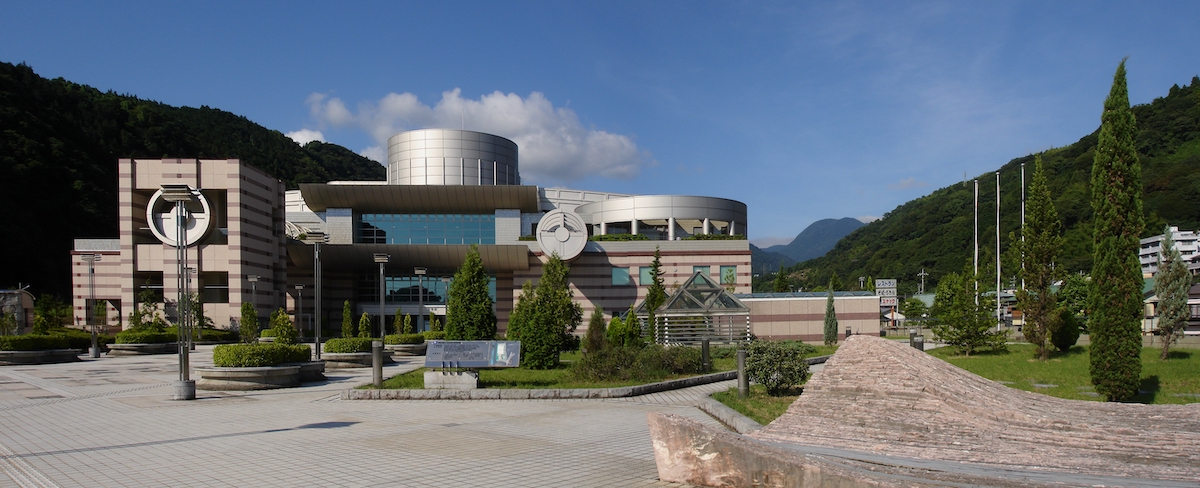
Speakers and Tiltles
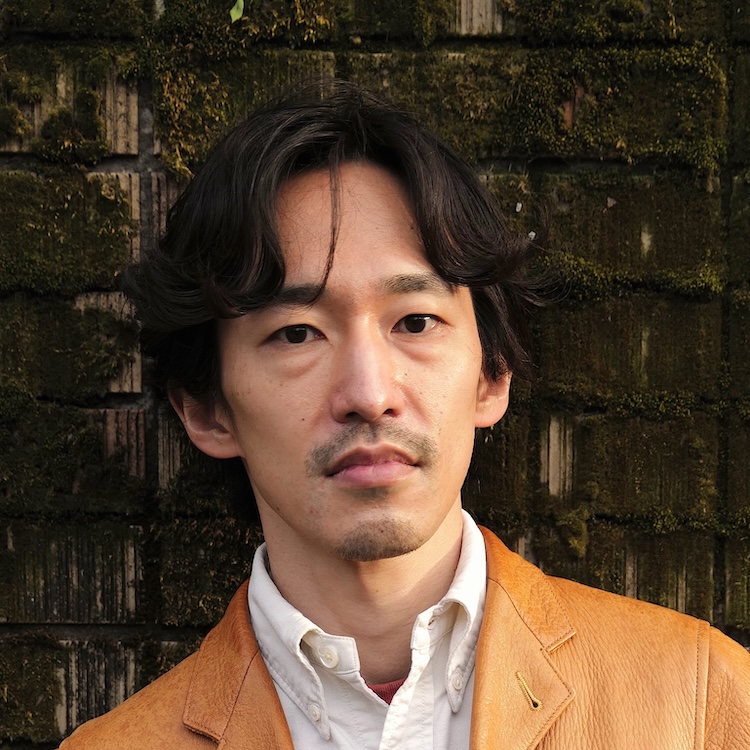
Dr. Tatsuya Hirasawa
University of Tokyo
化石から脊椎動物の進化の謎を解く
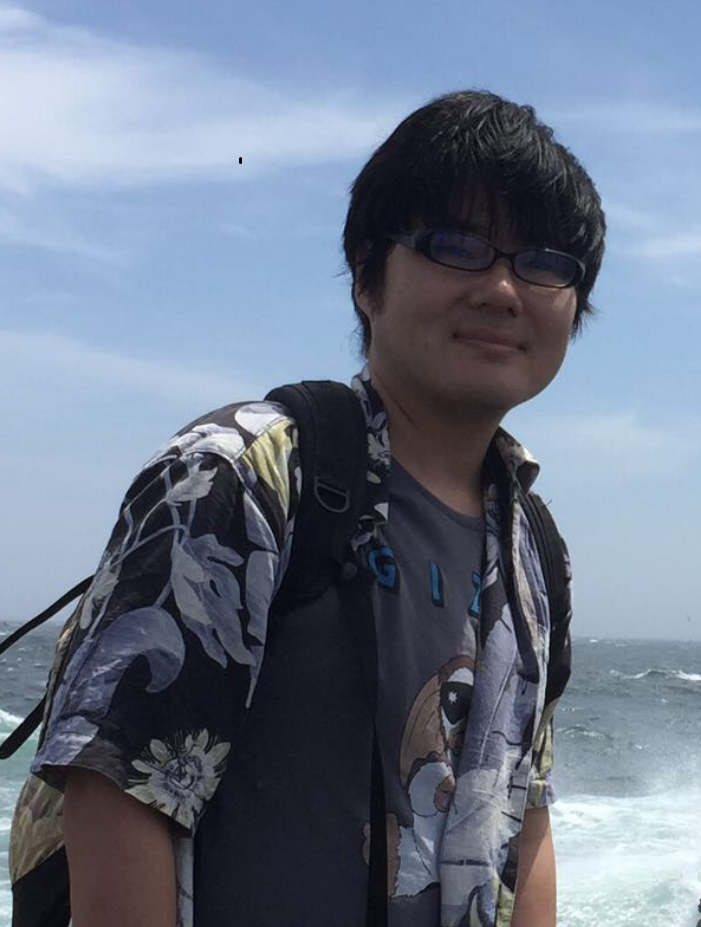
Dr. Takahiro Yonezawa
Hiroshima University
世界を変えた奇跡の動物 ~DNAから解き明かす家畜の起源と歴史~
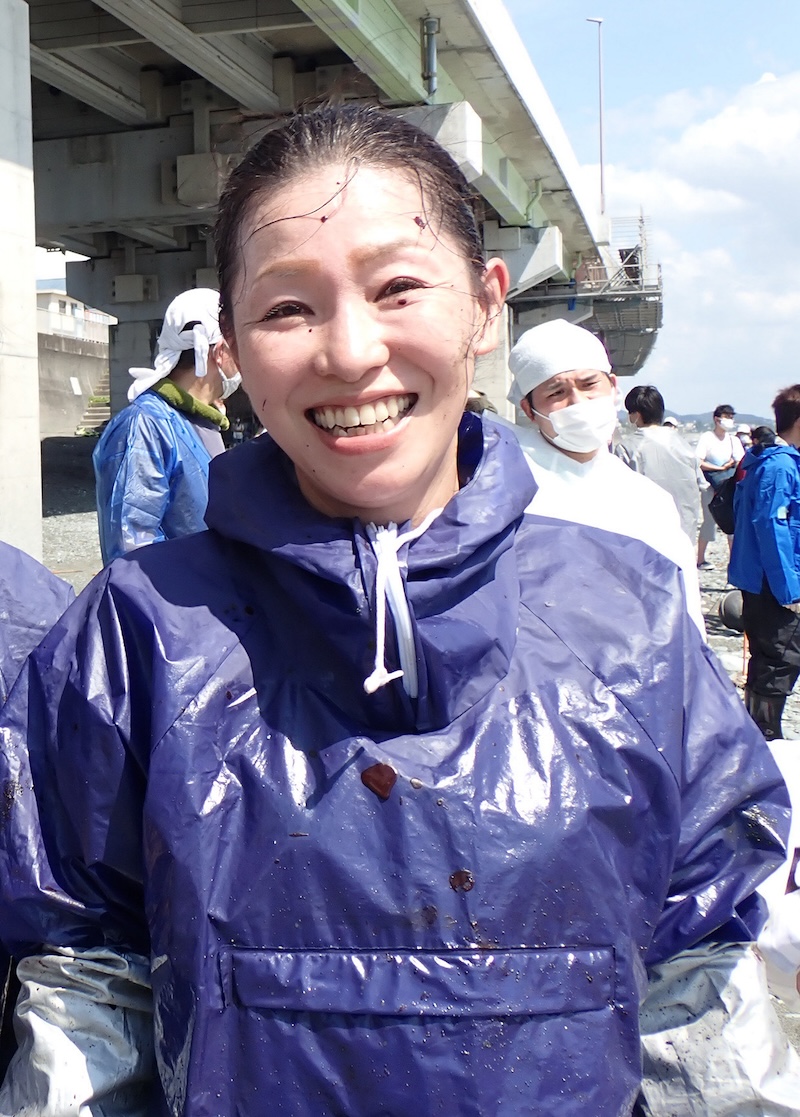
Dr. Yuko Tajima
National Museum of Nature and Science
海の哺乳類からのメッセージ
Regsitration
https://evolgen.biol.se.tmu.ac.jp/sesj2024reg/en-reg_form.asp
Please access the above URL for registration and abstract submission.
The respective deadlines are as follows.
Abstract submission: Registration for general presentations was closed on July 11 (Wed.)
Early registration deadline: Closed on July 24 (Wed.)
Last-minute registration deadline: August 20 (Tue.), payment deadline: August 20 Closed.
Deadline for on-site registration: August 23 (Fri.), payment deadline: August 23
Each presenter is limited to one (1) general presentation, whether oral or poster.
It is acceptable to give both a symposium presentation and a general presentation.
If you wish to present more than one presentation, please register an additional presentation after submitting one abstract.
Conference Participation and Socail gathering Fees
Early Bird Participation: By July 24, 2024
Closed
Last-minute and on-site registration
Members 7,000 yen for registration and 8,000 yen for social gathering
Students 4,000 yen for registration and 4,000 yen for social gathering
Non-members 8,000 yen for registration and 8,000 yen for social gathering
About payment
The participation fee for the event, the social gathering fee, and the childcare service fee are payable only through online payment using the Payvent.
Credit card and bank transfer can be used for the payment.
Please refer to the E-mail sent to you after regsitration.
* Please note that cash payments at the venue will not be accepted for this meeting. Even if you wish to make payments at the venue on the day of the event, please make the payment for the participation fee and the reception party fee online using your credit card. If you are unable to make payment by credit card, you will need to pay the membership fee, participation fee, and reception party fee via bank transfer on the day of the event. We apologize for any inconvenience, but you will need to visit the bank and present the payment details at the reception desk. Thank you for your understanding in advance.
* If payment is not confirmed by July 31st, please note that you will need to proceed with last-minute payment arrangements.
* Please be aware that refunds are not possible after payment. However, for childcare fees, refunds are available upon request.
About Oral presentation awards and Poster Presentation awards
The oral presentation awards are open to students and post-doctoral fellows (including specially appointed assistant professors) who have been nominated. There is no age limit. Only presentations in English are eligible for the award at this conference. For past award winners, please refrain from submitting nominations on themes related to those for which you have received awards in the past.
If you wish to be considered for the oral presentation award, please select "Presentation" → "Oral/Poster presentation" → "Oral presentation with award nomination" in the registration system.
Student members who have applied for poster presentation will be automatically nominated for the award. Those nominated for the Poster Presentation Award are required to present online and onsite. Please also see the notice on "Poster Presentations" section below.
・Information for the online poster presentation is available here (updated on 2 Aug).
The award winners may be asked to contribute to the "Society of Evolutionary Studies, Japan" News.
Venue
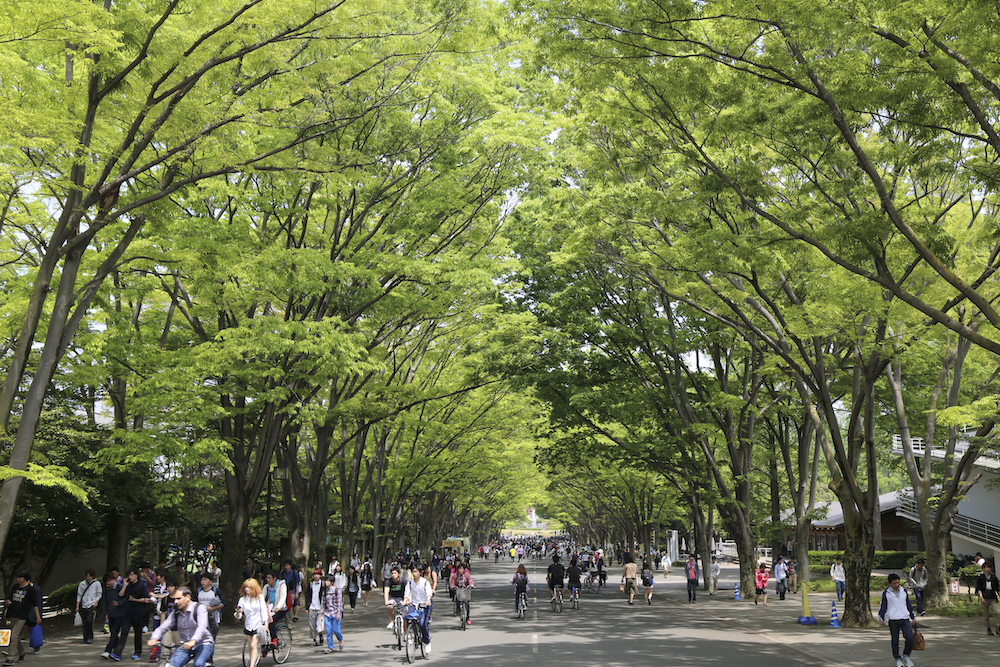
Tokai University Shonan Campus
2024 August 21 ~23
Please see HERE for the access information
Please refer https://www.odakyu.jp/english/transport/ for Odakyu Railway
(1.1) Access from Tokyo to Tokai University Shonan Campus
(1.1.1) From Shinjuku, Tokyo (Odakyu Railway)
Please take a train bound for Odawara or Hakone-Yumoto at Shinjuku Station and get off at Tokai-Daigakumae station (Approx. 70 min. by express train).
Shonan Campus is located within a 15 min. walk distance from Tokai-Daigakumae station.
One may also take a bus bound for "Hadano Station" or "for Shimo-otsuki Danchi" (about 5 minutes) and get off at "Tokai Daigaku Kita-Mon" stop.
(1.1.2) From Shinagawa station, Tokyo (Japan railways Tokaido Line)
Please take a train bound for Odawara, Hiratsuka or Atami at Shinagawa Station and get off at Hiratsuka station (Approx. 50 min.).
Then, please take a bus bound for Tokai Daigaku or Hadano Eki and get off at Tokai Daigaku Seimon-mae Stop. (30 min.) Shonan Campus is located within a 5 min walk distance from the stop.
(1.1.3) Notice on coming to the campus from Tokai Daigaku-mae Station
It is a 15-minute walk uphill from the nearest station, Tokai Daigaku-mae Station.
There are steep stairs and an escalator along the way, making it difficult for strollers and wheelchairs to pass.
In this case, we recommend taking a bus from Tokai Daigaku-mae Station or Tsurumaki Onsen Station (about one bus every 20 minutes).
Click here to see an image of the stairs (In Japanese).
(1.2) Map of Tokai University Shonan Campus
Click the here for PDF
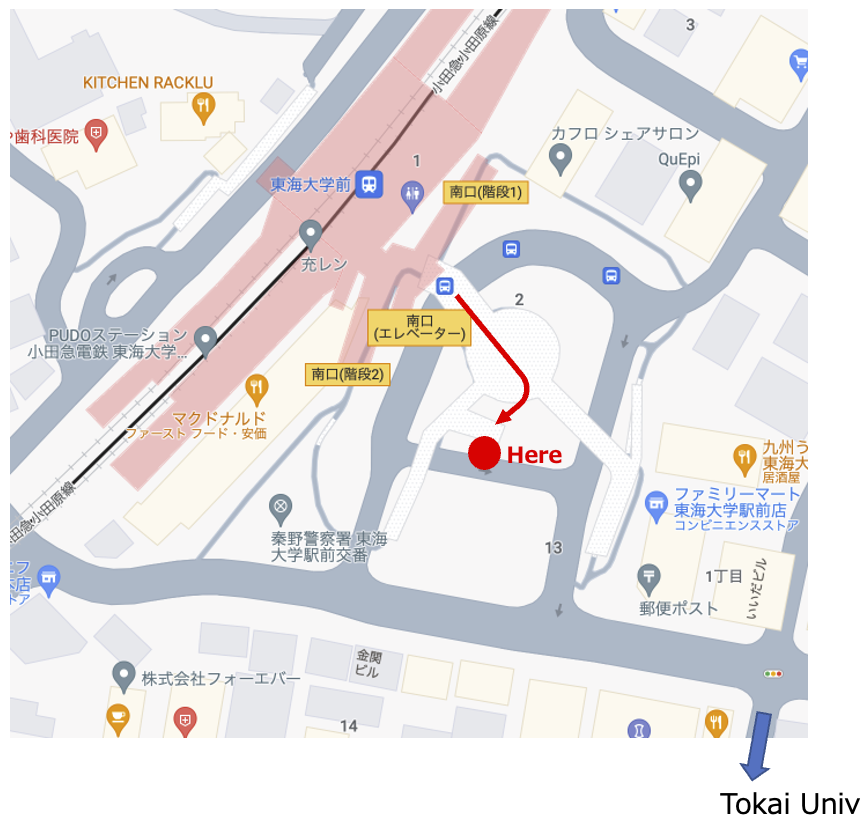
Shuttle-bus from Tokai-Daigaku-Mae station
Shuttle-bus is available from Tokai-Daigaku-Mae station (south exit) to the No. 14 Bldg. of Tokai University. Pick-up point is shown in the map.
Departure time:
8/21 ①10:00 ②10:15
8/22 ①10:00 ②10:15
8/23 ①9:30 ②9:45
Limited seats (27) are available. Please forgive us if the seats are fully occupied.
Please click here for Pick-up point.
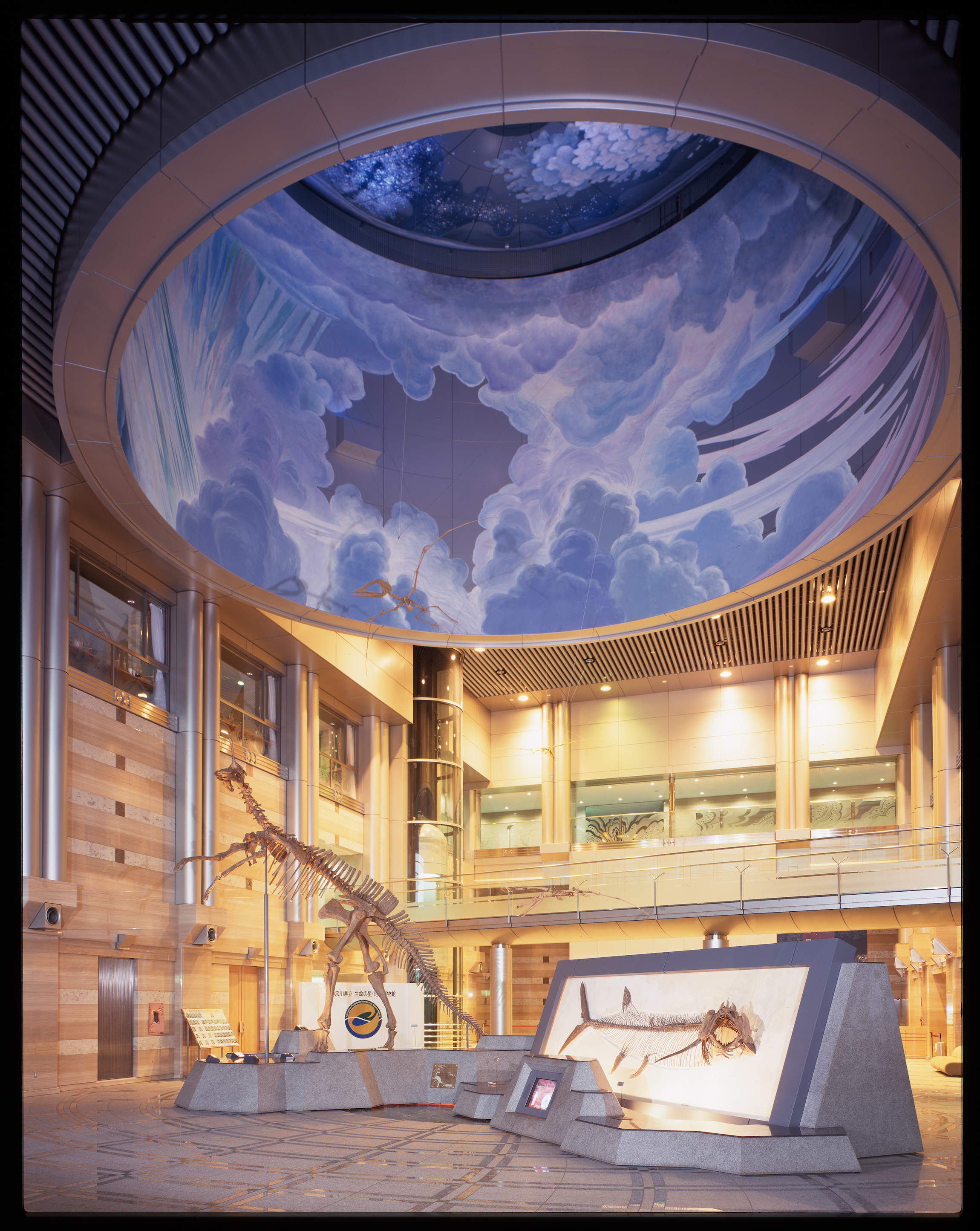
Kanagawa Prefectural Museum of Natural History
2024 August 24
Please see HERE for the access information
(2.1) Access from Odawara, Kanagawa to Kanagawa Prefectural Museum of Natural History
Please take a Hakone Tozan Railway train and get off at Iriuda Station, The museum is located within a 3 min. walk distance from Iriuda Station.
Childcare and family services at SESJ2024
1.Childcare
Childcare will be available at the 26th Annual Meeting of Society for Evolutionary Studies, Japan (SESJ2024).
We provide the childcare services with the following details.
--------------------
[Date and Time]
August 21 (Wed) 8:30 ~ 18:00
August 22 (Thu) 9:00 ~ 18:30
August 23 (Fri) 8:30 ~ 18:30, Evening Reception slot: 18:00 ~ 20:30
[Ages]
From 6 months to 9 years of age (3rd grade of elementary school).
[Capacity]
Approx. 11 children/day
[Fee]*
No charge.
*While meals are not provided in the childcare services, users can bring their own baby bottles, milk, baby food, and drink.
[How to register]
Registration was closed.
On-site registration: not possible
Childcare will be provided by PIGEON HEARTS CORPORATION. You can register by sending an email to the following address: takuji(at)pigeon.com, convert (at) to @.
--------------------
Please note that we do not offer childcare services for sick children.
If you have any questions, please feel free to contact Hiromi Matsumae (Tokai Univ.) and Takafumi Katsumura (Kitasato Univ.) at the following email address.
E-mail: shinka24.takuji(at)gmail.com, convert (at) to @.
2.Family services: Free lounge with your family, Nursing and Diaper Changing room
SESJ2024 will provide a free lounge with a kids' area, and a nursing and diaper-changing room from August 21-23 at Tokai University Shonan Campus.These spaces will be available for use at any time without registration.
If you have any questions, please contact us (see above).
--------------------
Notice
General notes
・Smoking is banned in Tokai university and Kanagawa prefectural museum of natural history.
・Please avoid commuting by car to Tokai university Shonan campus, as parking spaces are limited.
・Photograph, video and audio recordings are prohibited during oral and poster presentations including plenary lectures, symposia and workshops, without prior authorization or permits of presenters. Please allow photograph, video, and/or audio recording by a meeting organizer and its use for the society activities such as meeting report.
・Please do not disclose any contents presented during the meeting to any third party without presenters’ permission, as some content are not yet published.
・We expect participants from outside of Japan and/or people with different background. We recommend all presenters to apply universal design and use of English description or bilingual description of Japanese and English for your presentation, if possible. Please respect and consider people with different background.
Reception (On site registration)
・Reception site locates at the first floor of Building No. 14, Tokai university Shonan campus.
・Please always put on your name tag handed at the reception, during the meeting.
・For an undergraduate student, please show your university or college ID at the reception for free participation. For an undergraduate student participating in social gathering/ Gala dinner, please show an ID to confirm your current age to drink alcoholic beverages. Without confirmation, no undergraduate student is allowed to drink alcoholic beverages.
Cloakroom
・Cloakroom locates at the room 14-101, the first floor of Building No. 14, Tokai university Shonan campus.
・Cloakroom is open from the time when the reception starts to 18:10 on August 21 (Wed.) and August 22 (Thu.), and from the time when reception starts to 20:10 on August 23 (Fri.).
About on-campus cafeteria and lunch
・On-campus cafeteria are closed on Tokai university Shonan campus during the summer time. There are a limited number of restaurants or cafeterias near the campus, and it is highly recommended to bring your own lunch or order lunch box in priori.
・One may order a lunch box, costed 800 JPY per lunch box, for each day during the meeting at Tokai university Shonan campus, through the online payment by July 31 after registration. (You can complete your order by selecting the date and time you wish to order your lunch box at the online payment site provided in the email sent to you after your registration or abstract submission.)After August 1, 2024, no order is accepted for lunch box.
Social gathering/ Gala dinner
・Gala dinner will take place at Cafe Lounge 14 (Tokai university Shonan campus, building No. 14 basement floor) from 18:00 to 20:00, August 23, 2024 (Fri.).
・Please put on your name tag handed at the reception during gala dinner. If not, we may reject you for joining the gala dinner.
・Please pay appropriate fee for gala dinner in priori.
・Do not drink alcoholic beverages, unless you are legally allowed to do so.
・Cafe Lounge 14 is located next to the poster presentation room. As the poster presentation room is free to access, we encourage you to go to posters of your interest for further discussion.
Symposia and workshops
・Chair persons of each symposium or workshops are determined in priori by the organizer(s). Please keep each presentation on time so that each symposium or workshop ends, as scheduled.
・Window-based personal computer is set up for oral presentation at each room. Please bring your presentation file kept in USB memory, either a PDF file or a PowerPoint file to the person assisting presentation and copy it to the personal computer in the room, at least 10 min before the section starts at latest. If you use specific software to use during presentation or wish to use your own personal computer for presentation, please bring a computer, which can be connected to projector through VGA or HDMI video cable. There is a projector to test your presentation and to connect your own computer at the room 14-102, the first floor of Building No. 14, Tokai university Shonan campus, and we strongly recommend you testing computer and file content prior to your presentation.
・Be reminded and make sure the computer's display resolution does not exceed the projector's resolution, i.e., Full-HD(1920×1080).
・No equipment and facility for online broadcasting and presentation (such as Zoom conference room) is provided for the meeting.
Oral presentation
・Chair persons for each session of oral presentations are contacted in priori by the meeting organizer and determined. We ask each presenter to follow the instruction of chairperson.
・Window-based personal computer is set up for oral presentation at each room. Please bring your presentation file kept in USB memory, either a PDF file or a PowerPoint file to the person assisting presentation and copy it to the personal computer in the room, at least 10 min before the section starts at latest. If you use specific software to use during presentation or wish to use your own personal computer for presentation, please bring a computer, which can be connected to projector through VGA or HDMI video cable. There is a projector to test your presentation and to connect your own computer at the room 14-102, the first floor of Building No. 14, Tokai university Shonan campus, and we strongly recommend you testing computer and file content prior to your presentation.
・Be reminded and make sure the computer's display resolution does not exceed the projector's resolution, i.e., Full-HD(1920×1080).
・Allocated times for oral presentation are 12 min, excluding Q&A time of 3 min. The first, second and third bell ring after the start of 10min, 12min and 15min, respectively, and please end the presentation immediately after the third bell.
・Presentations nominated for oral presentation award are only presentation done in English. So, if you want to apply the oral presentation award, please prepare your presentation and talk in English.
Poster presentation
・Virtual poster presentation starts before the on-site poster presentation. Details of the online presentation method will be announced by the end of July on the meeting website. The system will allow conference participants to view and comment on the posted poster PDFs. The posters will be posted for several days prior to the conference. There is no core time, and there is no need to wait online for a fixed period of time.
・Please remind that it is requisite to present virtual poster presentation for application of poster presentation award.
・Information for the online poster presentation is available here (updated on 2 Aug).
・On-site poster presentation is scheduled from 17:00 to 18:00 on August 21 (Wednesday) and 22 (Thursday), 2024 at the basement of building No. 14, Tokai university Shonan campus. Please put a poster on appropriate poster board beforehand. Presenters for posters with odd numbers are expected to present own posters from 17:00 to 17:30 on August 21 and from 17:30 to 18:00 on August 22. Presenters for posters with even numbers are expected to present own posters from 17:30 to 18:00 on August 21 and from 17:00 to 17:30 on August 22.
and even numbers are expected to present own posters on August 21 and August 22, respectively and please stay next to your poster.
・Each poster can be posted from start of reception(on-site registration) on August 21 (Wednesday) to the end of gala dinner, i.e., 20:00 on August 23 (Friday) , 2024. Please remind and accept that, if posters not removed by the end of gala dinner, it is removed and disposed by the meeting organizers.
・The size of one poster board is 85cm wide x 175cm high and one pay post a poster of A0 size(84.1cm width × 118.9cm height). A label of your poster number will be put on the board in advance by a meeting organizer. Pushpins to put up a poster to the board will be prepared.
Summer school for evolutionary studies and public seminar
・Summer school for evolutionary studies and public seminar (in Japanese) will be help at Kanagawa prefectural museum of natural history on Saturday, August 24, 2024. No prior registration is required but seats are available on a first-come-first served basis.
You can enter the museum exhibit as well, if you show your official name tag handed at the meeting reception; either you will receive free ticket or you will be allowed to enter the exhibition rooms.
Childcare, nursery and attendance of children
・Childcare and nursery rooms are available from to August 21 to August 23, 2024. Nursery room is located but separated by boards from the other in the same room used for the other purpose. Please contact the following email address if your have any questions or concerns for childcare and nursery.
Contact address: shinka24.takuji[at]gmail.com
・Attendance of children into the meeting rooms are allowed, as far as a guardian is nearby. Please respect others to avoid any disturbance.
・Attendance of family member is encouraged for gala dinner but please enter appropriate information during the meeting registration and on-line payment. If more than two persons are expected to attend the gala dinner, please inform us by sending an email to RCIES_SHINKA [at] ml.soken.ac.jp. For other general questions, please contact shinka2024 [at] gmail.com
Wireless network available
・One may use eduroam service which offers wireless LAN roaming between educational research institutes In Japan, if you are able to access it. In addition, during the meeting period, wireless network “keyaki” will be set up and can be used for the internet access. Information necessary to access to “keyaki” will be provided at the reception and/or elsewhere during the meeting.
Sponsers and Exhibitors
ビッツ株式会社 BITS(BioInformation Technology & Science) PDF
株式会社生物技研
JT生命誌研究館
株式会社ジーデップ・アドバンス
プライムテック株式会社
Research Center for Integrative Evolutionary Science (RCIES), SOKENDAI
アズワン株式会社
Committee Members
Chair
Yoko Satta (SOKENDAI)
Members
Tadashi Imanishi (Tokai Univsersity)
Naoki Irie (SOKENDAI)
Tatsuya Ota (SOKENDAI)
Takamichi Orihara (Kanagawa Prefectural Museum of Natural History)
Takafumi Katsumura (Kitasato University)
Takushi Kishida (Nihon University)
Nobuyuki Kutsukake (SOKENDAI)
Jun Gojobori (SOKENDAI)
Takehiro Sato (Kanagawa Prefectural Museum of Natural History)
Satoshi Suzuki (Kanagawa Prefectural Museum of Natural History)
Mikiko Tanaka (Tokyo Institute of Technology)
Takumi Tsutaya (SOKENDAI)
Yohey Terai (SOKENDAI)
So Nakagawa (Tokai Univsersity)
Hiromi Matsumae (Tokai Univsersity)
Takayuki Watanabe (SOKENDAI)
Yuuki Watanabe (SOKENDAI)



